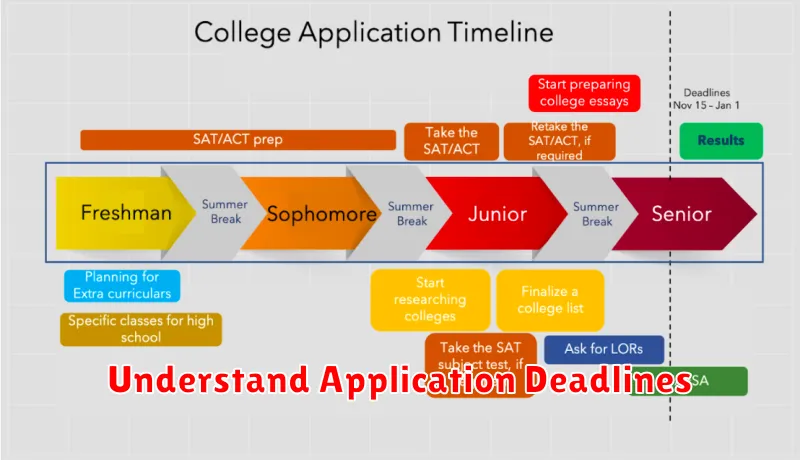Embarking on a higher education journey in a foreign land can be a truly transformative experience. Are you dreaming of earning a bachelor’s degree abroad? This comprehensive guide provides invaluable insights into the application process, helping you navigate the complexities of studying abroad and achieving your academic aspirations. We’ll cover everything from choosing the right international university to understanding admission requirements, crafting a compelling application, securing student visas, and preparing for the unique challenges of international student life. Whether you’re interested in applying to universities in Europe, Asia, North America, or elsewhere, this guide will equip you with the knowledge and resources you need to successfully apply for a bachelor’s degree program abroad.
Applying to a university abroad requires careful planning and execution. This article will break down the process step-by-step, offering practical advice and actionable tips to strengthen your application and increase your chances of acceptance. Learn how to research international universities, select programs that align with your academic goals, prepare the required documents, including transcripts and letters of recommendation, and ace the admission interviews. We’ll also discuss important factors to consider, such as tuition fees, scholarship opportunities, and the cultural adjustments associated with studying in a foreign country. Start your journey towards a bachelor’s degree abroad today with this essential guide.
Research Target Countries and Programs
Once you’ve identified your academic goals, begin researching potential countries and universities that align with your aspirations. Consider factors such as language requirements, cultural differences, and the overall learning environment.
Program Selection: Thoroughly investigate specific bachelor’s programs. Look at the curriculum, faculty expertise, and research opportunities. Ensure the program’s focus aligns with your academic and career interests.
Country Considerations: Research the cost of living, visa requirements, and the overall student experience in your target countries. Understanding the cultural nuances of your potential host country is crucial for a successful transition.
Check Academic and Language Requirements

One of the most crucial steps in applying for a bachelor’s degree abroad is thoroughly researching the specific academic and language requirements of each university and program you are interested in. These requirements can vary significantly between countries, institutions, and even specific degree programs.
Academic Requirements: Universities typically require specific secondary school qualifications or their equivalent. Some programs may require specific subjects or minimum grades in those subjects. You might need to submit transcripts, diplomas, or other supporting documentation. Be prepared to have your documents officially translated and evaluated if they are not in the language of the host country.
Language Requirements: Most universities require proof of proficiency in the language of instruction. Commonly accepted tests include TOEFL, IELTS, and Cambridge English exams. The required score varies depending on the university and program. Ensure you check the specific language proficiency requirements well in advance and allow ample time to prepare for and take the necessary tests.
Prepare Required Documents
Gathering the necessary documents is a crucial step in the application process. Requirements vary between universities and countries, so carefully review the specific instructions provided by each institution you’re applying to. However, some commonly requested documents include:
Academic Records
You’ll need to provide official transcripts from your secondary school, and potentially any post-secondary institutions you’ve attended. These transcripts should be translated into the language of the host country if necessary.
Language Proficiency Tests
If you’re not a native speaker of the language of instruction, you’ll likely need to submit scores from a standardized language proficiency test, such as TOEFL or IELTS.
Letters of Recommendation
Strong letters of recommendation from teachers or counselors who can speak to your academic abilities and character are often required.
Passport
Ensure your passport is valid for the duration of your intended study period. Some countries require a certain amount of validity remaining beyond your planned stay.
Understand Application Deadlines

Application deadlines are crucial when applying to bachelor’s programs abroad. Missing a deadline can mean missing an entire academic year. Deadlines vary significantly between countries, universities, and even specific programs within the same university.
Research deadlines well in advance. Start by identifying the specific programs and universities you’re interested in. Then, visit their official websites to find the application deadlines. Note that some universities have rolling admissions, meaning they review applications as they are received, while others have fixed deadlines.
Key factors influencing deadlines include the country of study, the program’s popularity, and the intake semester (fall, spring, or summer). Popular programs and prestigious universities often have earlier deadlines.
Create a timeline or calendar to keep track of all deadlines. Factor in time for gathering required documents, writing essays, taking standardized tests, and requesting transcripts. Aim to submit your application several days before the actual deadline to account for any unforeseen issues.
Write a Strong Personal Statement
Your personal statement is a crucial part of your application. It’s your opportunity to showcase your personality, experiences, and aspirations to the admissions committee. It allows you to go beyond your grades and test scores, providing a more holistic view of who you are and why you’re a good fit for their program.
Focus on your motivations. Why are you interested in this specific program and university? How will studying abroad contribute to your academic and personal growth? Be specific and avoid generic statements. Highlight relevant experiences that demonstrate your commitment to your chosen field.
Structure your statement effectively. Start with a compelling introduction that grabs the reader’s attention. Develop your ideas logically and provide concrete examples to support your claims. Conclude by reiterating your enthusiasm and suitability for the program.
Refine and revise. Proofread carefully for grammar and spelling errors. Ask teachers, mentors, or advisors to review your statement and provide feedback. Ensure your statement is clear, concise, and reflects your authentic voice.
Request Recommendation Letters
Requesting recommendation letters is a crucial step in your application process. Start early, as recommenders need adequate time to craft thoughtful letters. Aim to request letters at least one month before your earliest application deadline.
Choose recommenders who can speak to your academic abilities, character, and potential for success in a rigorous academic environment. Teachers, counselors, or other mentors who know you well are ideal choices.
When asking, provide your recommenders with relevant information to help them write a strong letter. This could include your transcript, resume, a list of universities you’re applying to, and a brief statement of your academic goals.
Submit and Track Applications
Once you have identified suitable universities and programs, it’s time to submit your applications. Each university will have its own application process, so carefully review the instructions on their website. Deadlines are critical, so ensure you submit all required materials before the specified date.
Application requirements typically include completed application forms, academic transcripts, letters of recommendation, and proof of English language proficiency. Some programs may also require standardized test scores (like the SAT or ACT) or a portfolio. Pay close attention to any program-specific requirements.
After submitting your applications, diligently track their status. Many universities offer online portals where you can monitor the progress of your application. This portal will often indicate whether your application is complete, under review, or if a decision has been made. Regularly check your email and the application portal for updates and any requests for further information.

